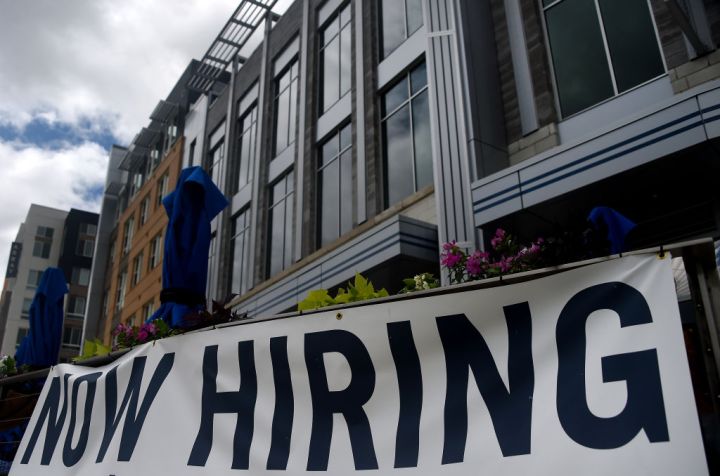
Job gains don’t paint a clear picture of the recovery
Job gains don’t paint a clear picture of the recovery

The U.S. economy added a seasonally adjusted 661,000 jobs in September, the Labor Department announced Friday. The unemployment rate is down to 7.9%. That’s not bad news.
But it’s far less impressive than the gains we’ve seen in earlier months, which means that this is where the hard part starts in this recovery.
You can thank Rebecca Hamilton for some of those 661,000 jobs that were created last month. Hamilton is CEO of W.S. Badger, which makes organic skincare products and sunscreen in New Hampshire.
“We have been hiring,” she said. “The future is very uncertain, but sales continue to be very strong for us.”
But the 661,000 net jobs created obscures the fact that 345,000 jobs were lost permanently.
“It’s really tough to be a bar owner right now. We closed our doors on March 17, and we haven’t been able to open them since,” said Zack Medford, a bar owner in Raleigh, North Carolina.
He said more and more bars are shutting down for good. Across the United States, job hiring is slowing down, and layoffs and bankruptcies are still with us.
“Businesses that initially hung on for a while are realizing they have to downsize or even capitulate,” said Seth Carpenter, chief U.S. economist at UBS.
It’s not just small businesses. United and American airlines are laying off 32,000 people, and that’s just two companies. Carpenter said state and local governments are also starting to let people go, especially in education.
Jason Furman, professor of economic policy at Harvard, has another concern.
“Millions of people have left the workforce,” he said.
Exactly 4.4 million have at this point in the pandemic given up looking for work, he said. This is bad, because that exodus, that form of hopelessness, is really hard to undo.
“After the Great Recession, to get people back into the labor force who had given up and left ’cause of the Great Recession, that process wasn’t even complete at the beginning of 2020 more than a decade into the economic recovery,” he said.
So it appears that we’ll be digging out from this for a while.
There’s a lot happening in the world. Through it all, Marketplace is here for you.
You rely on Marketplace to break down the world’s events and tell you how it affects you in a fact-based, approachable way. We rely on your financial support to keep making that possible.
Your donation today powers the independent journalism that you rely on. For just $5/month, you can help sustain Marketplace so we can keep reporting on the things that matter to you.












